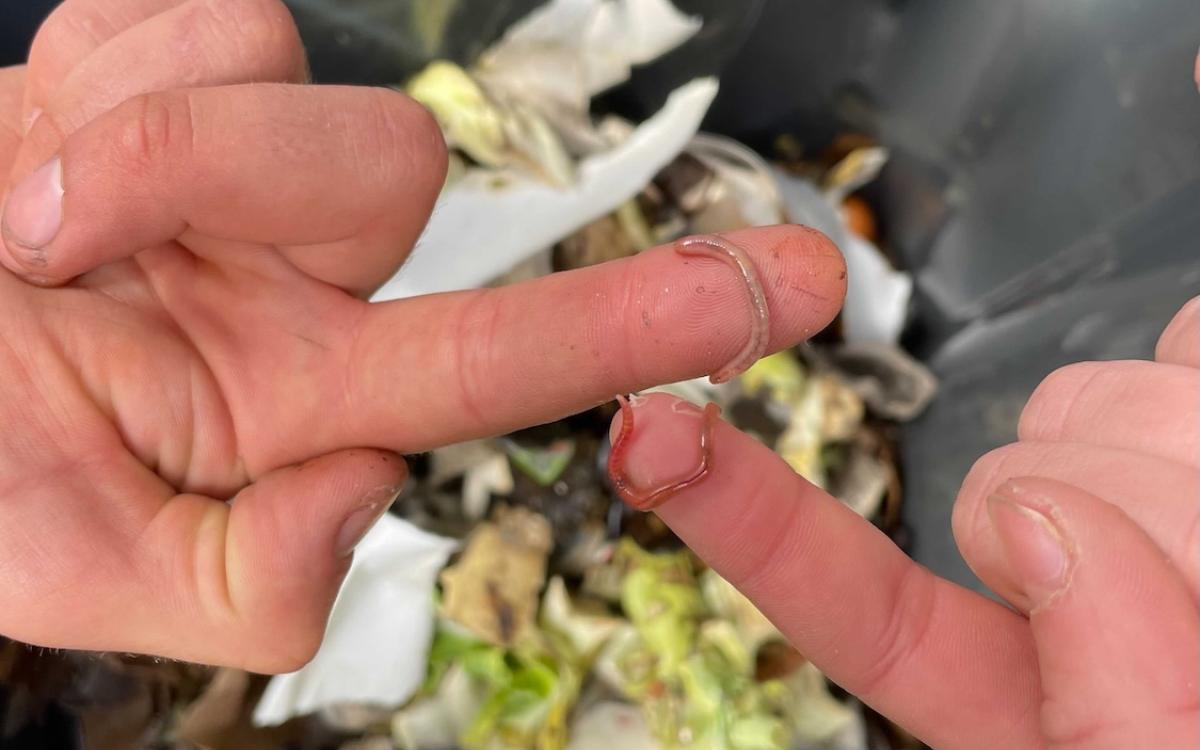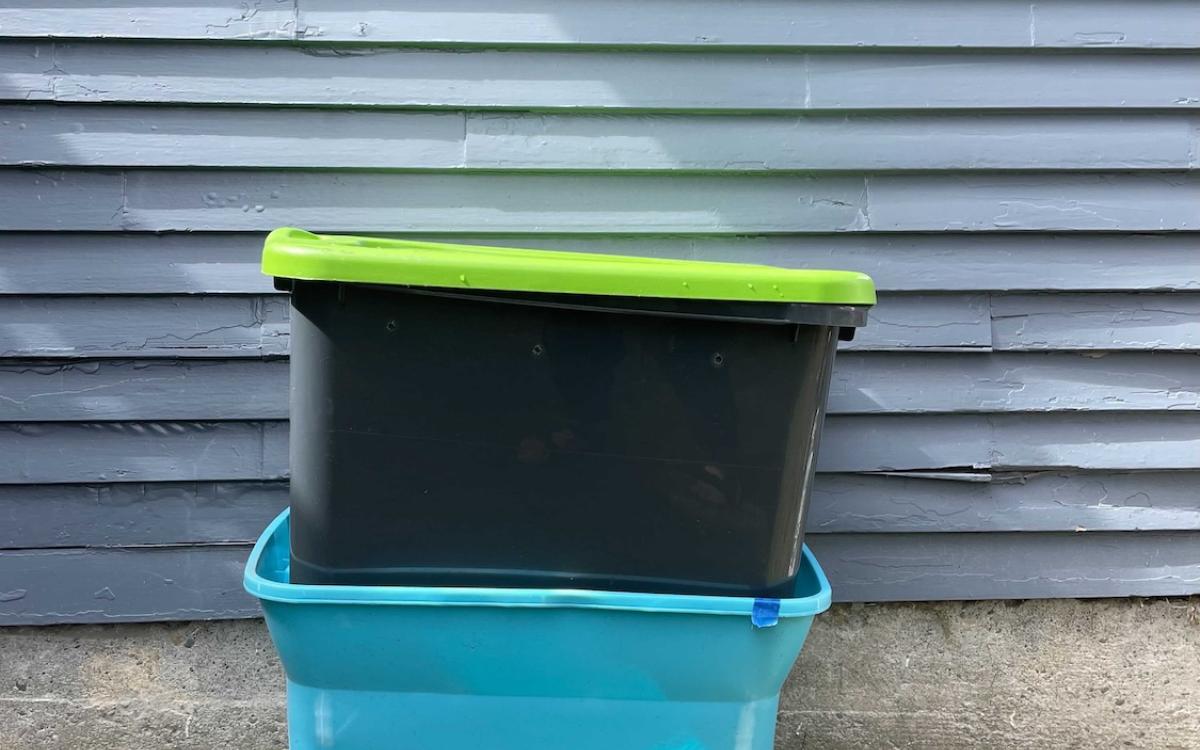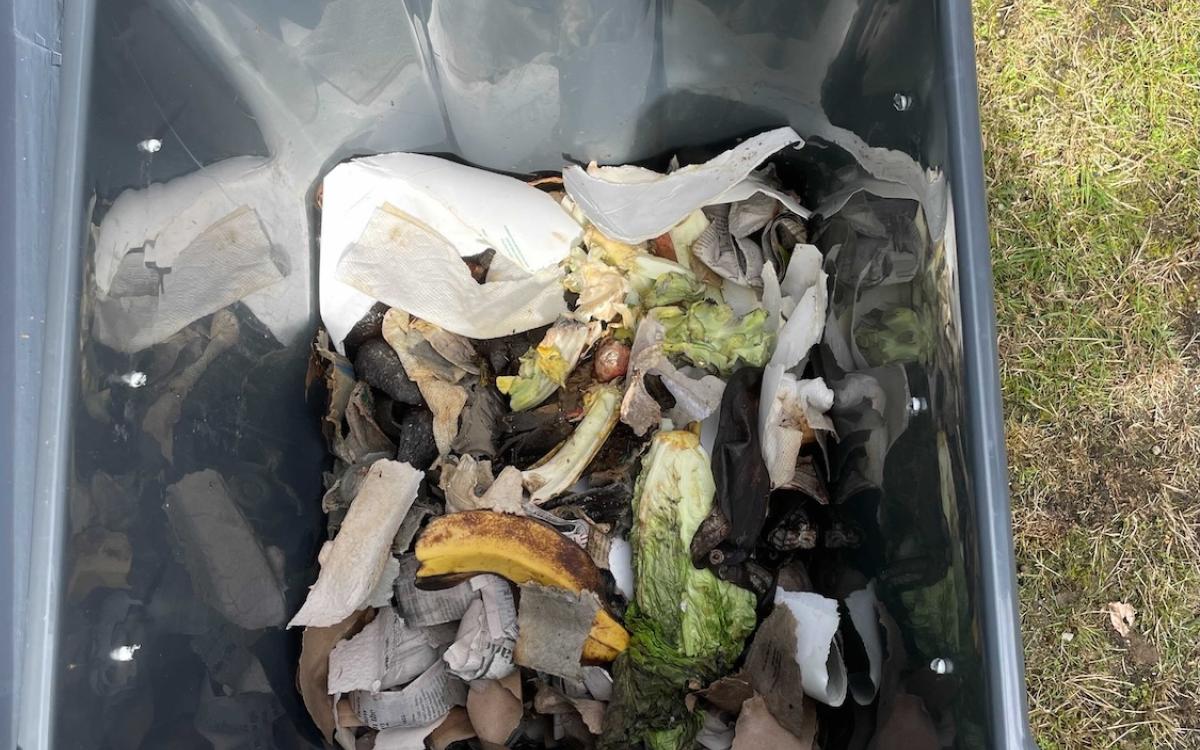At a glance
We aim to spark interest in the UW Farm and its vermiculture composting system through a hands-on "DIY" Dirty Dozen event,… Read full summary
- Funding received
- 2022-2023
- Mini
- Awarded
- $320
- Funding partners
-
- Services and Activities Fee (SAF)
We aim to spark interest in the UW Farm and its vermiculture composting system through a hands-on "DIY" Dirty Dozen event, teaching participants how to create and maintain their own vermicompost bins. CSF funds will be used to purchase 20-30 five-gallon buckets and worms for the event. This initiative will promote composting as an exciting and accessible sustainability practice while encouraging greater involvement in the UW Farm’s programs.
Our idea is to build interest in the UW Farm and its existing vermiculture composting system through hands- on exposure. We plan to host a Dirty Dozen event that centers around this "DIY" night and will teach people the in's and out's of making and maintaining their very own vermicompost bin. We will be using the funds provided by CSF to purchase 20-30 5 gallon plastic buckets to hold the worms along with their bedding/food, and the rest of the money will be put towards purchasing the worms themselves. This event will allow for more people to get interested in composting systems, and hopefully lead to more participation in UW's vermiculture program. We want to show people that composting is exciting and manageable, even at home! This will encourage more collective efforts at the UW Farm as well as exposing more people to individual acts of sustainability.
Kaija Koenigberg
Project lead
- kaijak73@uw.edu
- Affiliation
- Student
- Years
- 3 year(s) remaining at UW
- Affiliated groups
- UW Farm and Program on the Environment
Eli Wheat
Team member
- ewheat@uw.edu
- Affiliation
- Faculty
- Affiliated groups
- UW Farm and Program on the Environment
Eli Wheat
Club advisor
- ewheat@uw.edu
- Affiliation and department
- College of the Environment
Rani Zimand
Supports event
- liranzimand@gmail.com
- Affiliation and department
- Head of Dirty Dozen
Request amount and budget
Plans for financial longevity
What happens to the project after the funding ends is up to the people we hosted on this night. We will continue to encourage more people to get involved with the farm and composting at UW, but their involvement with their bins after the fact is up to them. We will hopefully be seeing more participation with the farm and the vermiculture system on campus, but it is hard to directly gauge how people will respond. We know that this is a good idea and is bound to gather more excitement regarding compost, but it is hard to say exactly what this will look like.
There will be one main part of this project, hosting the DIY Vermiculture Compost Bin Night. There is little to do before the actual night itself, besides gathering materials, as I will be leading this tutorial and I am quite well-versed when it comes to all things compost. We will have the event take place at the Dirty Dozen clubhouse, it will last most likely around 45 minutes to an hour, and we will show people how to start a vermiculture, and allow them to take the bins they make home. There isn't much complexity regarding the timeline.
Problem statement
We have noticed a lack of involvement and excitement regarding composting within the UW Farm program. Compost is an essential part to any sustainable farm, and in order to have a system of regenerative agriculture truly thrive, compost must be a main focus. We want to show students and staff looking to get more involved with the farm here at UW that compost is a fascinating science and extremely doable with the right materials and teaching. We want to directly expose numerous people to hands-on experience with compost, and take away any stigma that might be lingering regarding the subject. UW's Farm already has an established vermiculture (worm) composting system and we want to get more people directly involved with this system and excited about the work being done. We believe that hosting a tutorial night that ends with people taking home their own vermicultures would be the perfect solution.
Problem context
This event directly ties to encouraging more individual involvement with sustainability and will show that composting is truly accessible to all. Our plans to host this night of vermiculture how-to will allow people to become more sustainable in their own home's as well as providing people the means to access the materials necessary. By teaching people how to maintain their own bins, we will help to destigmatize the process of composting and show that compost is something anyone can do at an affordable level. It is not expensive to compost and maintain a worm bin, all you need is a bucket, worms, and the food scraps you already throw away in the trash. It's simple and results in a beautiful product, rich soil. We hope to expose more people to the wonders of composting and vermicultures and think this night could lead to much more action with the UW Farm.
Measure the impacts
| Impact / goal | Metric(s) of success | UW stakeholders impacted |
|---|---|---|
| Increased involvement and retention at the UW Farm. | 10- 15 new people signing up to volunteer at the farm. | Undergraduate, Graduate, Academic staff, Admin staff |
| Encourage individual acts of sustainability. | 20-30 people with new vermiculture compost bins maintaining and using them. | Undergraduate, Graduate, Academic staff, Admin staff |
| Teach people about composting and getting individuals inspired to become more involved with composting as a whole. | 20-30 people attending this educational night and retaining the information presented. | Undergraduate, Graduate, Academic staff, Admin staff |
Communication tactics and tools
We will be making multiple announcements through social media posts, word of mouth, and communication over the Dirty Dozen's Slack channel. We will spread the word through multiple social media platforms and hopefully get a great turnout!
Outreach communication plan
We will be communicating that this event is taking place through the Dirty Dozen's Slack channel and the multiple UW Farm instagram accounts. The UW Farm and the Dirty Dozen club will benefit the most from this project.
Student involvement
n/a


